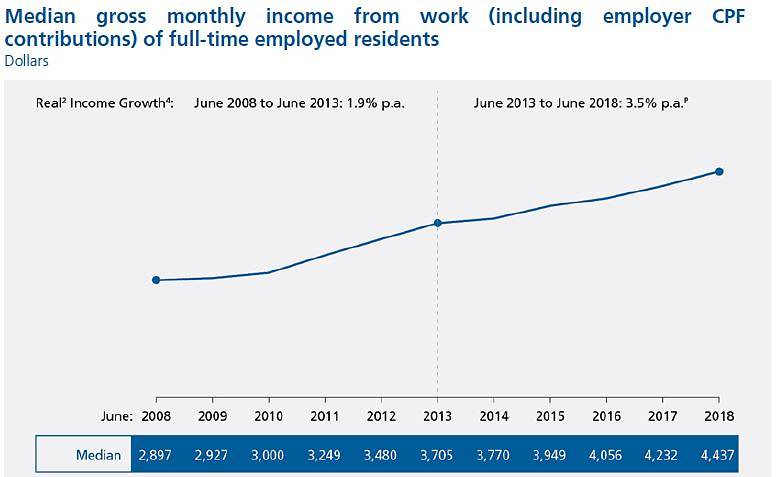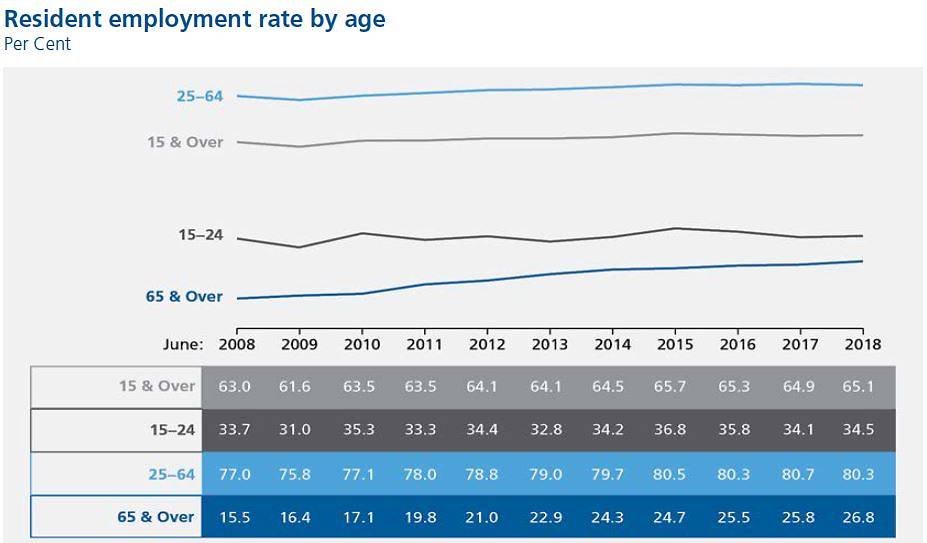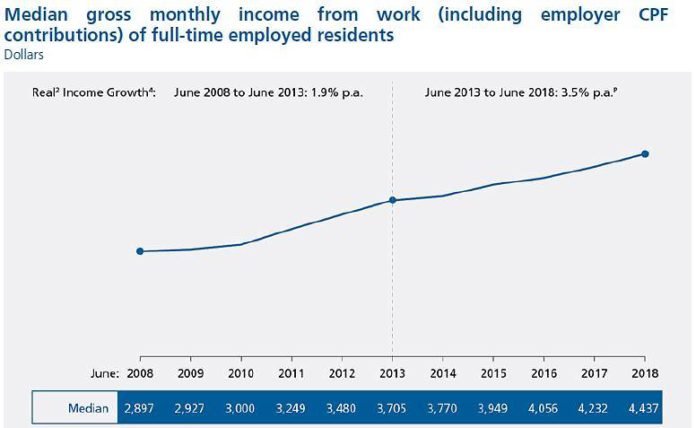SINGAPORE: Workers in Singapore saw their wages grow this year, with the median income rising above S$4,400, according to data released by the Ministry of Manpower (MOM) on Thursday (Nov 29).
The median gross monthly income among Singaporeans and permanent residents who were employed full-time was S$4,437 this year, including employer contributions to the Central Provident Fund.
This compares to a median income of S$4,232 last year and S$4,056 the previous year.

Source: Ministry of Manpower
The findings were based on the Comprehensive Labour Force Survey conducted in mid-2018 by the ministry’s research and statistics department.
After taking into account inflation, the median gross monthly income grew by 3.5 per cent a year from 2013 to 2018, significantly higher than 1.9 per cent a year from 2008 to 2013, the ministry said.
Lower-income earners – those at the 20th percentile – saw their median income grow 4.2 per cent a year over the past five years. MOM said this could be the result of curbs on foreign hiring and initiatives such as the Wage Credit Scheme, which co-funds wage increases for lower-income Singaporeans.
EMPLOYMENT UP AMONG ELDERLY RESIDENTS
The employment rate among Singaporeans and PRs was 80.3 per cent for those aged 25 to 64, slightly lower than the 80.7 per cent last year. This puts Singapore in the eighth position for employment rate among OECD economies, and fourth for full-time employment, the ministry said.
Among those aged 65 and above, the employment rate rose to 26.8 per cent in June this year compared to 25.8 per cent in the same period last year.

Source: Ministry of Manpower
“Efforts to improve the employability of older workers encouraged more to stay on, and those previously outside the labour force to return to employment,” MOM said.
The rising employment rate among the elderly has helped offset the impact of ageing on the labour force participation rate, the ministry said. The labour force participation rate for residents aged 15 and above was 67.7 per cent in June this year, a figure which has stabilised in the past four years following an earlier uptrend, MOM said.
The non-seasonally adjusted unemployment rate for professionals, managers, executives and technicians (PMETs) declined for the second straight year to 2.9 per cent, from 3 per cent last year.
There was also a broad-based decline in unemployment among non-PMETs in most age groups, the ministry said.
However, the long-term unemployment rate among PMETs rose from 0.7 per cent to 0.8 per cent this year. This was because more unemployed PMETs in their 30s or aged 50 and above took longer to find a job, MOM said.





